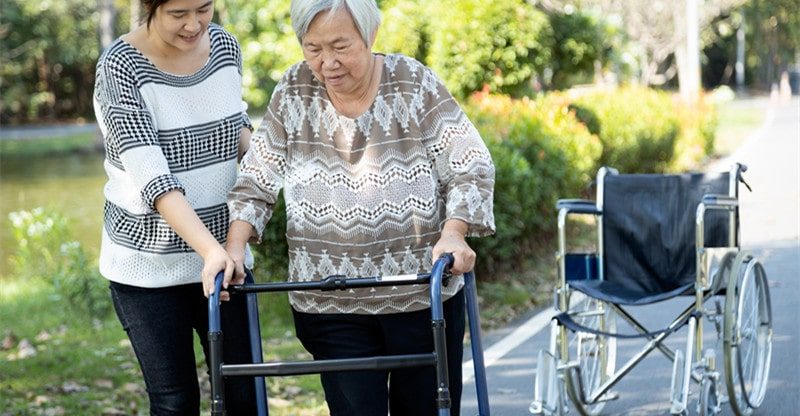Caring For Seniors With Special Needs: 5 Tips For Families
Taking care of an older relative can serve as a challenge for most families. This is especially true if your loved one also has a disability.
Often, you’d find senior citizens living alone and doing perfectly fine. But for seniors with special needs, living on their own may be considerably challenging. As their relative, you might need to step in to help. When you do, don’t fret. You can care for your senior loved one to the best of your abilities with these tips:
1. Discuss Their Condition With Doctors
It’s essential to know the exact condition that is affecting your older relative. Special needs require special care tailormade for them. Consult your relative’s physician for any preexisting concerns or ones that may happen in the future.
From these discussions, you can seek the help of disability service providers to care for your relative. The senior will get the assistance that’s catered to them and their needs. Also, take note to keep constant communication with their physicians and professional caregivers. Accidents may also happen, so you should have direct contact with the healthcare providers at any time.
In addition, it’s advisable to keep communication lines open by using telehealth or telemedicine apps. This tool can help caregivers talk to medical professionals, especially in remote areas. The doctor can assess the patient through interview and visual inspection and prescribe medication based on the signs and symptoms. Moreover, health practitioners can provide helpful, tailor-fit advice for senior patients at home using these apps.
2. Care For Them At Home
If you have an older relative with a preexisting disability, you may have considered bringing them to a nursing home. Though there’s nothing wrong with this, home care for seniors has several benefits.
For starters, your relative may be more comfortable at home than somewhere else. They’ll feel less alone in the companionship of other family members. Home care also provides personalized care for the senior relative. In addition, the help of a professional caregiver plus your knowledge of your relative may result in the utmost quality of care.
You can also provide one-on-one care at home. Unlike in nursing homes, your loved ones can receive all the attention they need as both family members and caregivers tend upon them.
Families can take good care of older people with disabilities at home by providing nutritious food and a clean and safe place for them to stay. For instance, families can set up a room on the first floor to protect the patient from staircase falls.
Families can also invest in electric mobility scooters, wheelchairs, grab bars, and other assistive devices. Using these devices can help promote independence and provide freedom to seniors struggling with daily activities. In addition, installing grab bars and guard rails promotes safety while caring for seniors at home.
3. Incorporate Them In Your Daily Life
A disability shouldn’t stop your senior relative from being part of the family. Something as simple as having meals together or watching TV can make them feel important and needed. This way, you let them know that they aren’t a hindrance to you and that you still care for them.
Keeping them isolated will only distress them further. Get them involved in easy chores and pastimes the whole family will enjoy. If your senior relative isn’t immobile, let them join you for a walk or a quick drive around the neighborhood. You can also check out these tips on improving senior mobility to keep them healthy and happy while at home.
In addition, you can include senior family members in social gatherings, such as community events. Many communities have dedicated programs and events for senior citizens. Find time to visit your community center to learn about the current year’s programs for the elderly. Furthermore, seniors can also join volunteer work, like packing food supplies, to help them give back to the community and meet other people.
4. Become Their Advocate
People with special needs have their rights too but are often seen otherwise because of their condition. Understand where your loved one is coming from. Few people know what it’s like to have an older relative with special needs. Many can’t say that they’ve met one either.
As their home caregiver, you must also serve as their advocate. Learn to rid yourself of that stigma that often comes from misunderstandings. By doing so, you become your senior relative’s number one supporter who’ll stand up for them.
Educate yourself
Read up on the latest methods of elderly and long-term care. Meet with doctors, research new practices, and attend talks about healthcare for seniors with special needs. In doing so, you’ll make your life easier as both a caregiver and a relative. Hence, extensive knowledge can help you make better choices as you care for your loved one and advocate for seniors with special needs.
Collect medical records
Make sure you’re storing your senior relative’s medical records in a safe and dry place. You can also study these to gain a better understanding of the one you’re caring for. Should you want to hire another in-home caregiver, you can provide them with accurate information. Hence, you are educating others on how to better care for the seniors.
5. Don’t Forget Self-Care
Caring for an aged person with a disability can drain you physically and emotionally. They can’t receive care from you if your mind and body are constantly in bad shape.
Ask for help
You might be your senior’s only caregiver aside from their professional one at home. If you find yourself losing energy as the days go by, don’t hesitate to call for assistance. Ask for help from other family members when you need to.
When you get free time, savor it. Get that needed rest and put your focus on your hobbies for a moment. Self-care is necessary, so don’t think of it as being selfish. Both you and your loved one will benefit greatly from your well-deserved break.
Join support networks
Try to find a support network of other families caring for seniors with special needs. Here, you can discuss matters and concerns you may not be able to talk about with just anyone. In addition, there might be local groups around which you can attend in-person and virtual communities if you prefer to stay indoors.
Grab the opportunity to join one when you can. You’ll have the space to vent and also share and receive tips from other home caregivers.
In Conclusion
As with any family member, you need to show them love, concern, and empathy. In the case of senior relatives with special needs, you might need to put in a little more effort. But it’s the kind of effort that directly helps another person in the long run. You may also feel better about yourself knowing you’ve done something for your loved one to experience the best remaining years of their life.




